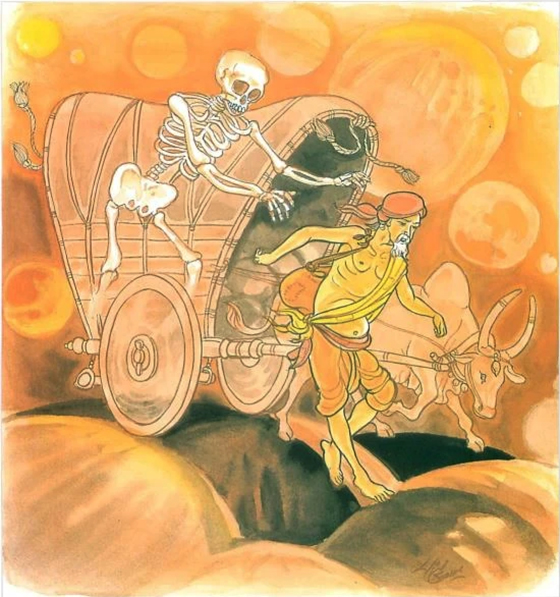The Story of Thera Cakkhupala

Verse 1: All mental phenomena have mind as their forerunner; they have mind as their chief; they are mind-made. If one speaks or acts with an evil mind, ‘dukkha’ 3 follows him just as the wheel follows the hoofprint of the ox that draws the cart.
- manopubbangama dhamma: All mental phenomena have Mind as their forerunner in the sense that Mind is the most dominant, and it is the cause of the other three mental phenomena, namely, Feeling (vedana), Perception (sanna) and Mental Formations or Mental Concomitants (sankhara). These three have Mind or Consciousness (vinnana) as their forerunner, because although they arise simultaneously with Mind they cannot arise if Mind does not arise. (The Commentary)
-
manasa ce padutthena (Verse 1) and manasi ce pasannena (Verse 2): Manasa here means intention or volition (cetana); volition leads one to the performance of volitional actions, both good and evil. This volition and the resultant actions constitute kamma; and kamma always follows one to produce results. Cakkhupala’s blindness (Verse 1) was the consequence of his having acted with an evil intention in a previous existence and Matthakundali’s happy existence in Tavatimsa celestial world (Verse 2) was the result of his mental devotion (manopasada) to the Buddha.
-
dukkha: In this context, dukkha mens suffering, or physical or mental pain, misfortune, unsatisfactoriness, evil consequences, etc., and rebirth in the lower planes of existence or in the lower strata of human society if born in the human world.
The Story of Thera Cakkhupala
While residing at the Jetavana monastery in Savatthi, the Buddha uttered Verse (1) of this book, with reference to Cakkhupala, a blind thera. Continue reading






